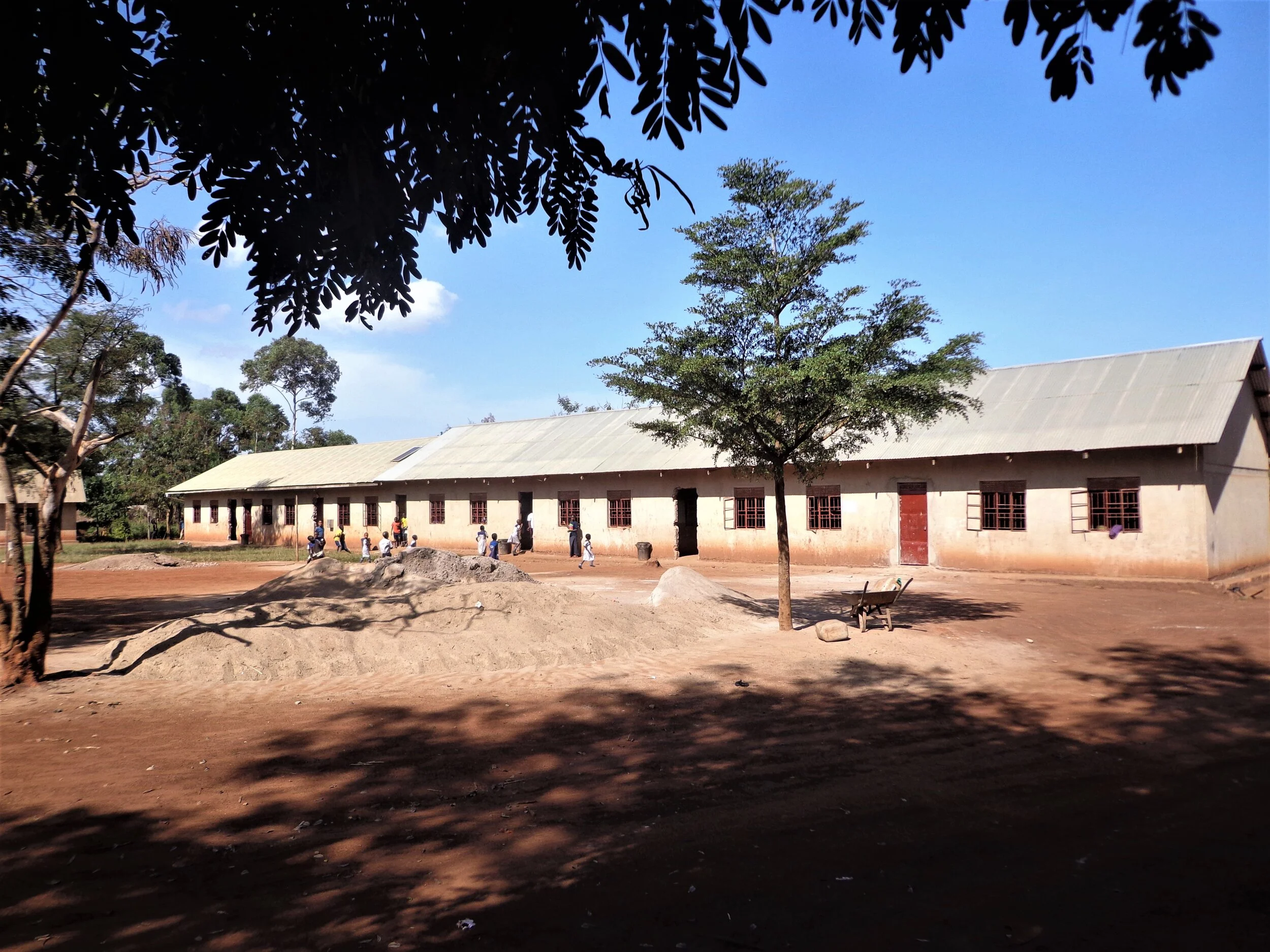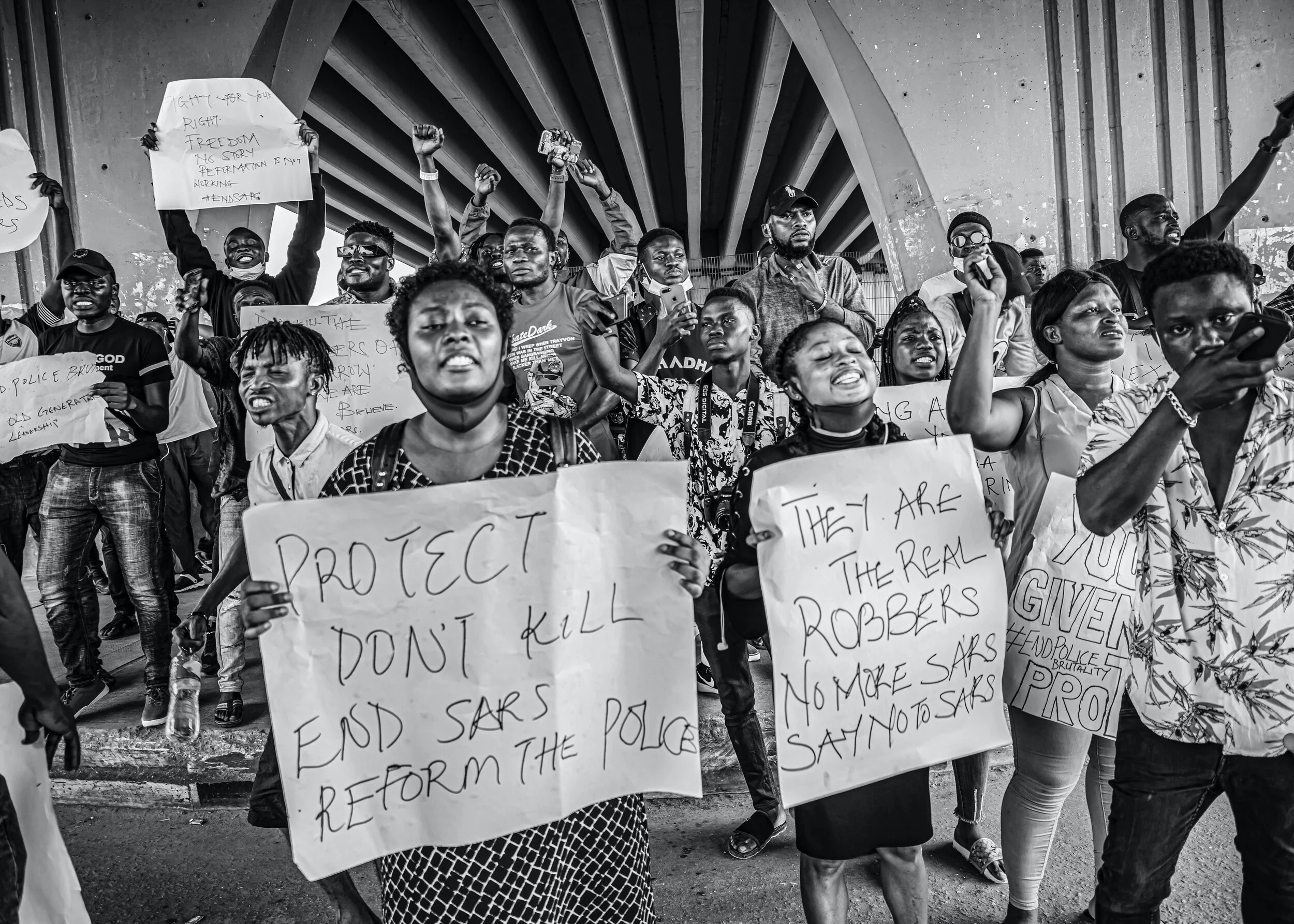Yagazie Emezi on the Redemptive Power of Photography
Yagazie Emezi
Photo: Yagazie Emezi
Yagazie Emezi had always taken pictures for her blog and social media account. But it wasn’t until she moved back home to Nigeria from the US that her photography went from being a hobby to a career.
“In between trying to create a television show for African women to talk about their health and sexuality,” Emezi said, “I’d been taking pictures and sharing my experience of living in Lagos. I was captivated [by the city].”
Since 2015, when she began taking photos professionally, the self-taught, freelance photojournalist’s profile has risen, with her work appearing in several international publications that include Vogue, CNN, Al Jazeera, Refinery29 and New York Times. In 2018, she received the inaugural Creative Bursary Award from Getty Images.
As a child growing up in the South-eastern city of Aba, Emezi knew that no matter where life took her, Africa would always be her lodestar. She dreamt of becoming an archaeologist, then an Egyptologist before eventually choosing to study cultural anthropology and African studies at the University of New Mexico in America.
“African studies came naturally to me because I always never envisioned a life working outside Africa,” she said. “I didn’t have dreams of leaving [Africa]. I only had dreams of exploring my home and its surroundings.”
Emezi’s photography typically focuses on women’s reproductive rights, sexuality, beauty and human rights, and has taken her across Nigeria as well as to Liberia, Ivory Coast, Kenya and Rwanda. Some of her assignments adopt a transnational outlook, demonstrating humanity’s interconnectedness. Case in point, her ongoing Relearning Bodies project explores trauma beyond violence and abuse among Nigerians and Liberians with scars. The project aims to make scars as normal as faces and disabuse society of idea that those who bear them are imperfect or unlovable.
The inspiration for Relearning Bodies came from Emezi herself, who was left with a large, visible scar on her leg following a motor accident. The reaction towards her ranged from pity to stares to feigned blindness, and in response, she resorted to wearing trousers for two years straight, vowing never show her leg.
Image from Relearning Bodies Collection
Photo: Yagazie Emezi
“There isn’t a single person who can go through life without a single mark on their body,” noted the photojournalist, “so why do we stare at people with scars as opposed to just seeing it as a norm?”
Emezi has since overcome her insecurities, but her experiences undoubtedly continue to fuel Relearning Bodies. The next phase of the project, she said, will focus on drawing similarities between the topographies of scars and nature.
While current affairs rarely informs her work, she isn’t averse to dipping her fingers in it. In They Say We are Lazy—a response to Nigerian President Buhari’s controversial characterisation of the country’s youths as lazy—each image depicts the industry and inventiveness of young Nigerians despite the lack of opportunities. According to Emezi, the appeal came from the fact that anyone, especially those in developing countries, could relate to a story about perseverance.
And in a highly competitive market such as Lagos, one certainly requires a heavy dose of perseverance, especially freelancers who occasionally grapple with irregular assignments and infrequent pay. Emezi herself experienced a four-month drought at the beginning of the year that made her question her talent. She said another challenge she has had to contend with, like many African creatives, is the fear of being confined by commissioning publications to chronicling only African stories as opposed to photographing stories about and around the world, simply because she’s African.
Still, despite these existing hurdles, the freelancer revels in the freedom to select her work.
“I follow the thing that I’m curious about versus what would get me published or paid,” she said. “Something always happens out of good work because you’re doing it out of sincere passion, which I think carries you further.”
A version of this story appeared in the 2019 Sept.-Nov. edition of Inzozi, Rwandair’s in-flight magazine.
You May Also Like












